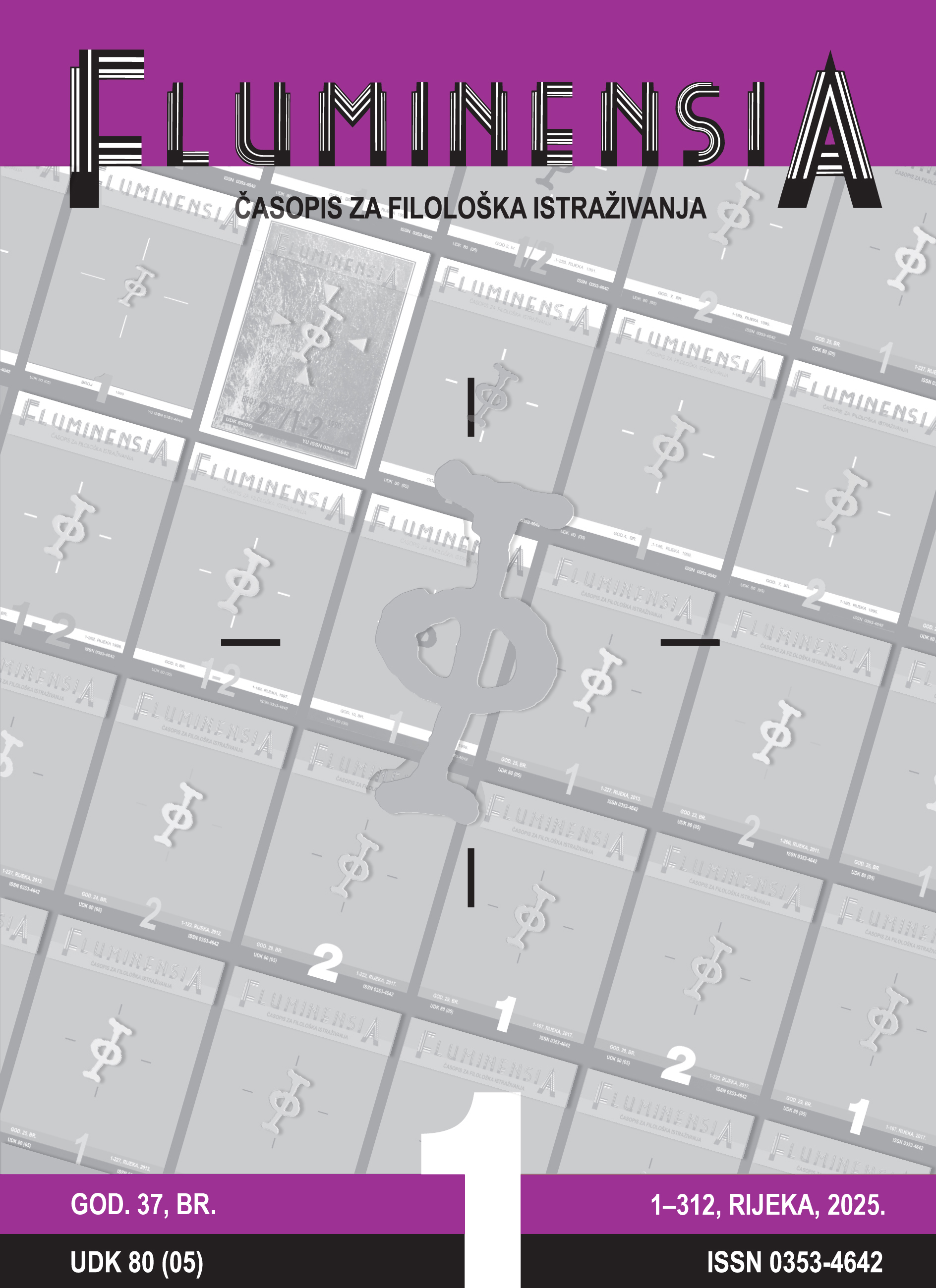The Influence of Speaking Rate and Cognitive Load on the Acoustic Characteristics of Fricatives /s/ and /ʃ/ in Croatian
Keywords:
speech rate; cognitive load; spectral moments; voiceless fricatives; gradual speech errorsAbstract
This research examined the influence of speaking rate and tasks with different cognitive demands on the acoustic characteristics of the fricatives /s/ and /ʃ/ in Croatian. It also attempted to determine the acoustic parameters that identify or differentiate these two speech sounds. Ten native Croatian speakers participated in the research. The target segments /s/ and /ʃ/ were produced as a part of tongue twisters that consisted of a series of four monosyllabic words of the CVC structure and were always in the initial position. The participants had to repeat the tongue twisters in four different ways: at a normal speech rate while reading them on the screen, at a normal rate from memory, at a faster rate while reading, and at a faster rate while recalling. “Reading” was considered an easier task, while “recalling” was considered a more cognitively demanding task. The analyzed acoustic parameters were the segment duration, the intensity, and four spectral moments: (1) the spectral center of gravity, (2) standard deviation/ variance, (3) skewness, and (4) kurtosis. The results showed that a greater speech rate shortens the duration of the target segments. The speech rate did not affect any spectral moment, except the spectral center of gravity, but only in the case of the fricative /ʃ/. It also did not affect the intensity. In faster speech, target segments did not differ significantly in kurtosis, which indicates the process of their mutual neutralization. The cognitive difficulty of the task did not influence the acoustic characteristics of the target speakers. The research also showed that the 1st, 3rd, and 4th spectral moments successfully distinguish the fricatives /s/ and /ʃ/ in Croatian, while the 2nd spectral moment did not significantly differentiate the target segments. The research has revealed that in the Croatian language the sound energy of the fricative /s/ is concentrated at higher frequencies on the spectrum and has a lower kurtosis than /ʃ/, although both segments have a spectrum with well-defined peaks. Both analyzed segments have an asymmetric distribution of spectral energy around the center, but in opposite directions – for /s/ the kurtosis has positive, while for /ʃ/ has negative values.

